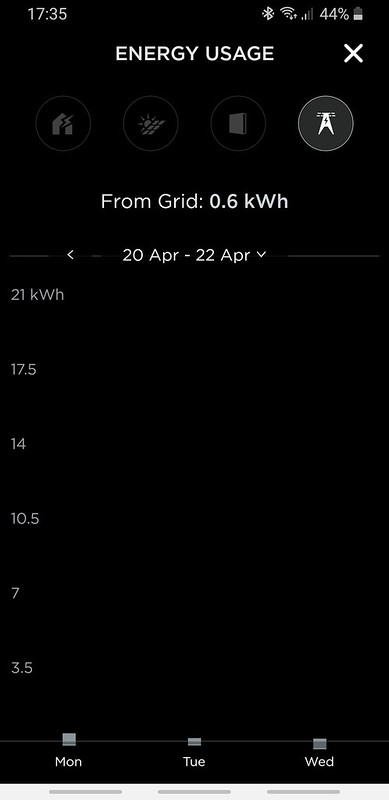Would those of you with Octopus Energy recommend them?
Which tariff are you on?
Which tariff is your gas on?
Which tariff are you on?
Which tariff is your gas on?
You can install our site as a web app on your iOS device by utilizing the Add to Home Screen feature in Safari. Please see this thread for more details on this.
Note: This feature may not be available in some browsers.
Would those of you with Octopus Energy recommend them?
Which tariff are you on?
Which tariff is your gas on?
I’ve been with Octopus since last August. Because I had compatible smart meters I was moved onto the 5p GO tariff a couple of days after going live.Would those of you with Octopus Energy recommend them?
Which tariff are you on?
Which tariff is your gas on?
I would look at the Go Faster - but not sure they're accepting new people onto it at the moment.
Yes, Agile can give a saving if your usage patterns can accommodate its variable pricing.

I'm waiting for financials to go through with my car (which is ready to collect!) but delayed because of Covid shenanigans. So taking the time to sort out my electrical supplier and charging needs. I commute around 70 miles a day and do use cars for trips during work (sporadic amounts between 10 miles and 50 miles a few times a week). I only just (based on my calcs) fill up the car during the 4hrs for my regular commute so additional 'work' mileage will be filled up outside of the low rate - shame, but better than burning diesel.
Can anyone send me a referral please - will use first one in inbox - the race is on!
I only just (based on my calcs) fill up the car during the 4hrs for my regular commute so additional 'work' mileage will be filled up outside of the low rate - shame, but better than burning diesel.
How did that compare to over winter?
Extraordinary times and perfect weather conditions meaning unprecedented electricity supply patterns and headline grabbing prices at the moment (for comparison, our average daily rate in these conditions is around 4p/unit thanks to a modest solar install and thats without taking into account the FiT rate so really -15p/unit, but it doesn't last, just a good point in time thats totally unrepresentative to normal usage). Yes, Agile can give a saving if your usage patterns can accommodate its variable pricing, but the only way to know if it will work for ones usage is to compare several years real world usage vs equivalent Agile rates.
But if you just want to know you can plug in for 4 hours (around 28kWh at 7kW, so between around 40% and 55% battery top up of a Model 3) and be guaranteed a decent tarrif rate, Go makes it very easy.
At the moment I’d stick with So Energy. It might be worthwhile looking at Octopus GO once you’re back to charging your car, that’s where the savings are to be made.Anyone had any benefit going to Octopus without smart meters? (This is more than my existing supplier)
Octopus quoted:
Elec
14.7735p per kWh
Standing charge
21.168p per day
Gas
2.6565p per kWh
Standing charge
17.85p per day
So Energy
Electricity standing charge (p/day) 22.05
Electricity unit rate (p/kWh) 13.40
Gas standing charge (p/day) 22.05
Gas unit rate(p/kWh) 2.42
13/3 to 13/4 used
552kWh Electric (no car charging, 'just' home life)
3610kWh Gas
Im guessing the benefits are there to be had with smart meters installed and trying to profile your use to suit the tariff
I agree with Roy. The numbers do not add up to move to Octopus right now.Anyone had any benefit going to Octopus without smart meters? (This is more than my existing supplier)
Octopus quoted:
Elec
14.7735p per kWh
Standing charge
21.168p per day
Gas
2.6565p per kWh
Standing charge
17.85p per day
So Energy
Electricity standing charge (p/day) 22.05
Electricity unit rate (p/kWh) 13.40
Gas standing charge (p/day) 22.05
Gas unit rate(p/kWh) 2.42
13/3 to 13/4 used
552kWh Electric (no car charging, 'just' home life)
3610kWh Gas
Im guessing the benefits are there to be had with smart meters installed and trying to profile your use to suit the tariff


